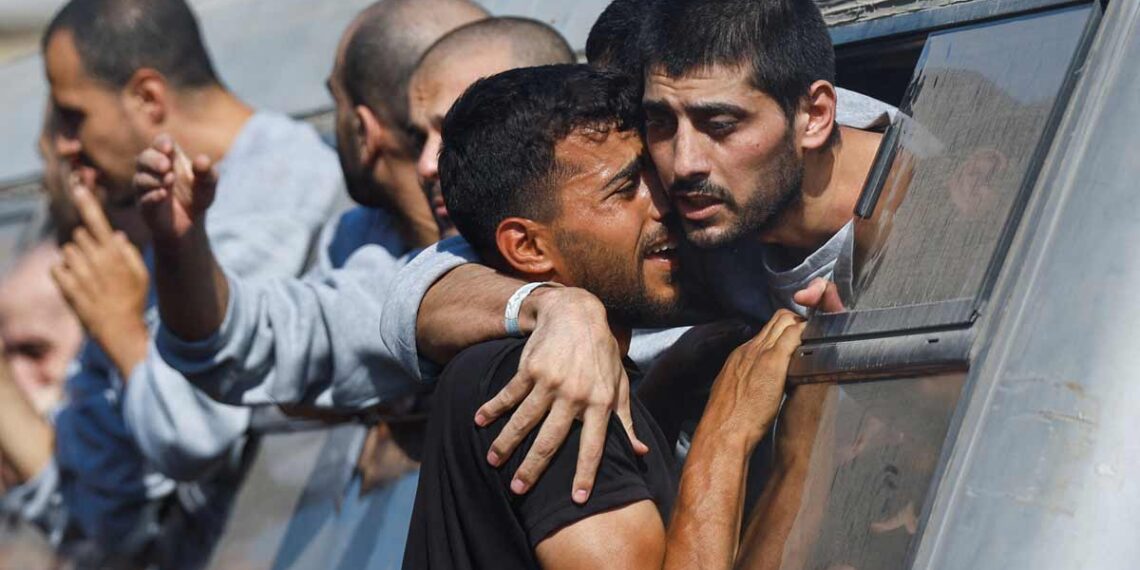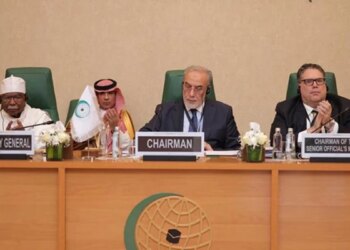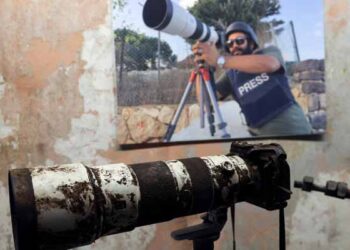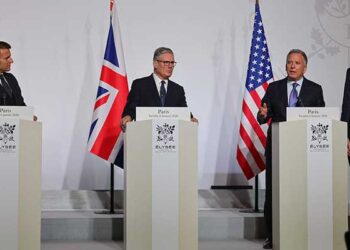Select Language:
Palestinians in Gaza and the occupied West Bank flooded the streets, bursting with emotion as they welcomed home released prisoners under a U.S.-brokered ceasefire agreement. Tears and cheers filled the air, blending hope with the pain of past losses.
The prisoners’ release followed Hamas’s decision to free the last 20 hostages still held, all of whom were taken during the October 7, 2023, attack that ignited the war in Gaza.
As part of the deal, Israel agreed to free 250 Palestinians convicted of murder and other grave crimes, along with 1,700 individuals detained in Gaza since the conflict began. Additionally, 22 Palestinian minors and the remains of 360 militants were handed over.
Crowds gathered in and around Nasser Hospital in Khan Younis, in southern Gaza, anxiously awaiting the arriving freed prisoners. Some waved Palestinian flags, while others clutched photographs of their loved ones.
A man holding a Palestinian flag stood in front of a bus transporting the released prisoners from the Ofer military prison, located between Ramallah and Beitunia in the West Bank.
Fighting back tears, a woman who identified herself as Um Ahmed expressed mixed feelings about the day. Despite her happiness over the release, she revealed she still felt conflicted.
The buses bringing the prisoners arrived, with some prisoners sticking their heads out the windows to wave V-for-Victory signs. They prepared for medical checks at the hospital.
Earlier, around a dozen masked Hamas fighters arrived at the hospital, where a stage and chairs had been set up to honor the returning prisoners. Loudspeakers blared patriotic songs celebrating the Palestinian cause.
Hamas reported that 154 prisoners were also deported to Egypt. In previous releases, large crowds would fill the streets in Ramallah, waving flags representing Palestine and various political factions, including Hamas.
Many of the freed prisoners dressed in gray prison tracksuits, with some wearing the traditional black-and-white keffiyeh around their necks—an enduring symbol of Palestinian resistance.
Some happily accepted being carried on relatives’ shoulders, expressing unrestrained joy. “Prisoners live on hope… coming home to our land is worth more than all the gold in the world,” one detainee, Samer al-Halabiyeh, said. “God willing, peace will come, and the war in Gaza will end,” he added.
As the prisoners arrived, many refused to speak with journalists, often explaining they had been told not to before their release.
In Khan Younis, a crowd gathered near Nasser Hospital, eager to catch a glimpse of those taken during the conflict. When the buses arrived, thousands cheered as they saw their loved ones returning home.






